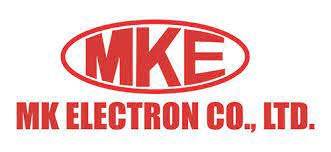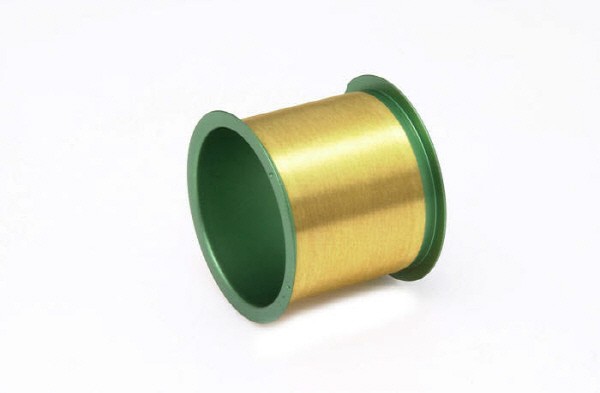80% of sales are exported... Benefit from high exchange rates
99.99% purity gold and silver used as raw material
Signed a gold fixed price contract with a customer
Every time the price of gold goes up
In every global economic crisis such as the IMF currency crisis, Lehman Brothers crisis, and COVID-19, there is a semiconductor material company that had 'quantum jump' growth. This is the story of MK Electron, a KOSDAQ-listed company that makes 'bonding wires', an ultra-fine wire that is essential for the semiconductor assembly process. Despite the prolonged COVID-19 situation, MK Electron achieved 1 trillion KRW in sales on a consolidated basis last year and is expected to continue its growth this year.
MK Electron's main business is 'bonding wires' and 'solder balls', which are ultra-fine balls used to bond semiconductor chips to PCB boards. The proportion of sales is about 90% of bonding wire and 10% of solder ball.
A bonding wire is an ultra-fine wire about a quarter of the thickness of a human hair. Satisfying high-temperature bonding reliability and mechanical and electrical properties is the core of technology. Entry barriers are very high. The market share of MK Electron Bonding Wire is No. 1 in the global market.
Whenever there is an economic crisis, such as an epidemic, MK Electron’s performance rose rather high. This is due to the fact that 80% of total sales are exports, and they benefit from the result of the high exchange rate.
During the 1998 IMF crisis, many companies experienced a decline in exports and underwent restructuring, and MK Electron achieved their first sales of 100 billion KRW, with sales growth of 23% compared to the previous year. At that time, operating profit also increased by 82% compared to the previous year. In addition to the high exchange rate effect, market conditions such as PC and mobile expansion were favorable.
Sales and operating profit grew significantly during the 2002-2003 SARS and 2015 MERS epidemics. In 2015, they acquired Korea Real Estate Investment and Trustand started to expand their business area. In the case of the Lehman Brothers crisis in 2008, the company recorded sales of 450 billion KRW and operating profit of 24 billion KRW.
Even after COVID-19, MK Electron continued to grow. This is the result of a surge in semiconductor demand due to the non-contact trend. MK Electron is expected to record the highest sales last year. On a consolidated basis, it is likely to reach 1 trillionKRW for the first time in history.

The fact that they recorded good results in each 'global crisis' is also influenced by the main materials used by MK Electron. Bonding wire, which accounts for most of sales, uses raw materials such as gold or silver with a purity of 99.99%. Gold prices usually soar every time there is an economic crisis, but MK Electron hasfixed price contract for gold with their customers.This is why sales and profits increase whenever the price of gold rises.

The overseas Chinese subsidiaries are also growing solidly, contributing greatly to sales. As China strengthened their internalization of semiconductors, the sales of MK Electron's Chinese subsidiary continued to increase.
MK Electron is expected to grow this year as well. As demand for semiconductors continues to increase, demand for bonding wires and solder balls, which are our main businesses, continues to rise. As a new business, MK Electron plans to develop a new growth engine for the company through tin recycling business, secondary battery anode material development, and solder paste.
MK Electron official said, "We plan to achieve remarkable results not only in our core businesses but also in new business fields this year. We will accelerate to penetrate the global market."
By Staff Reporter Sora Park (srpark@etnews.com)